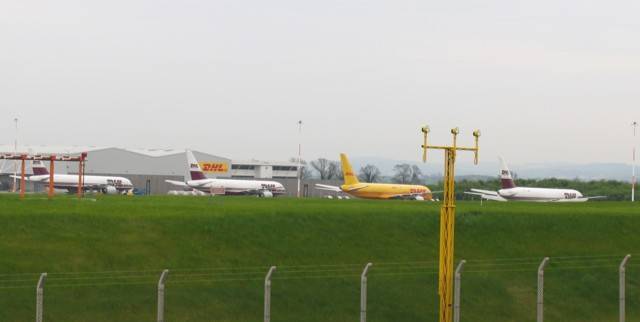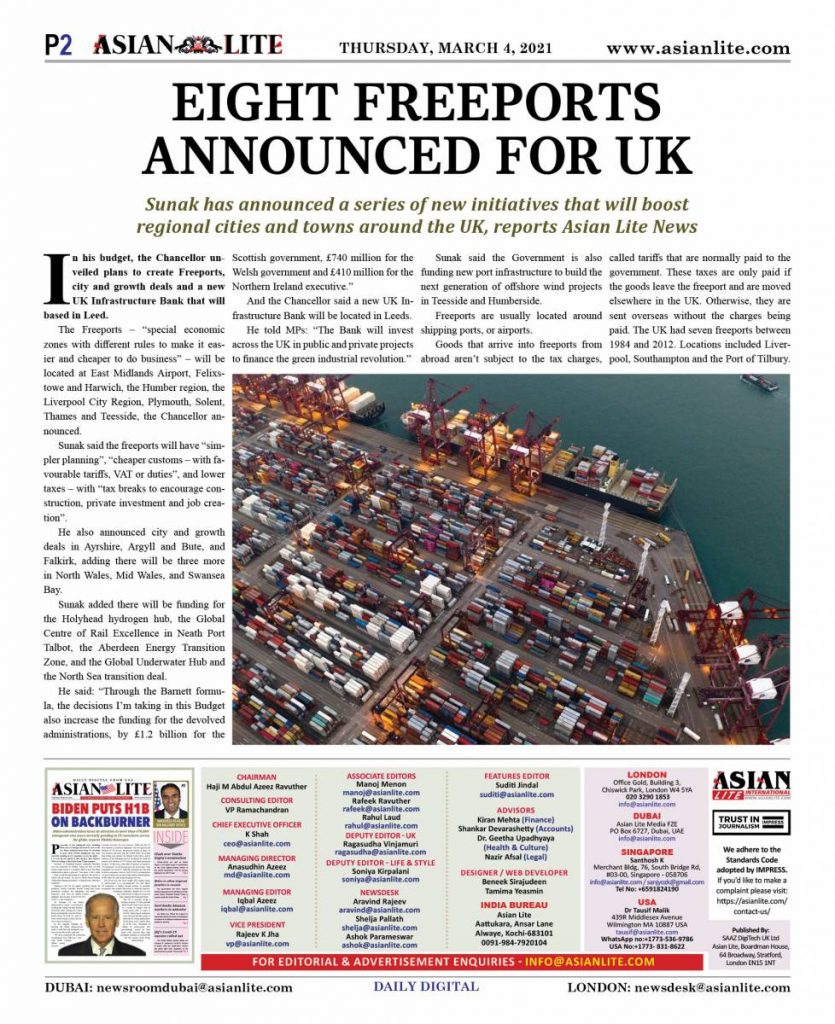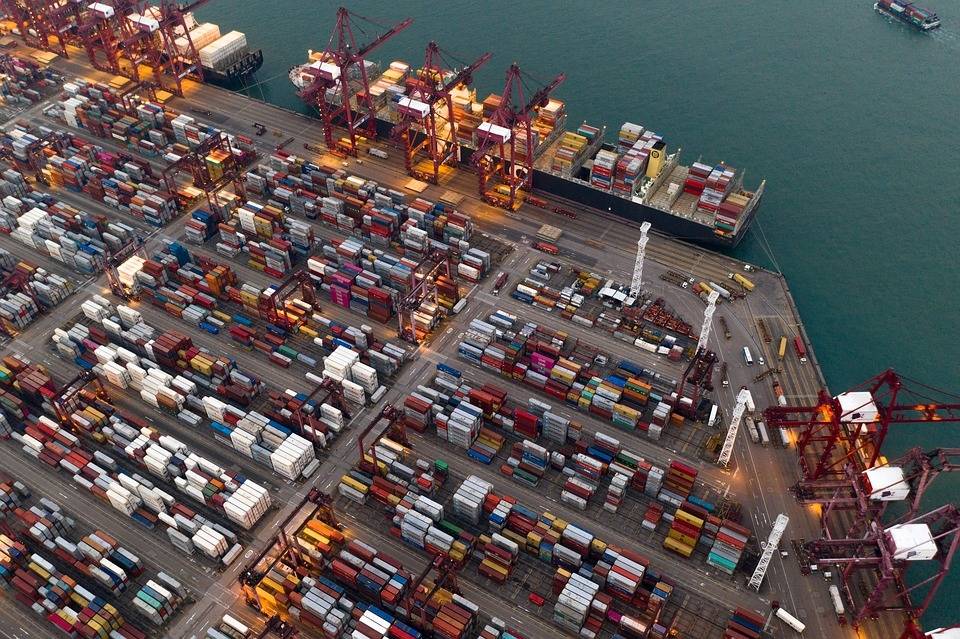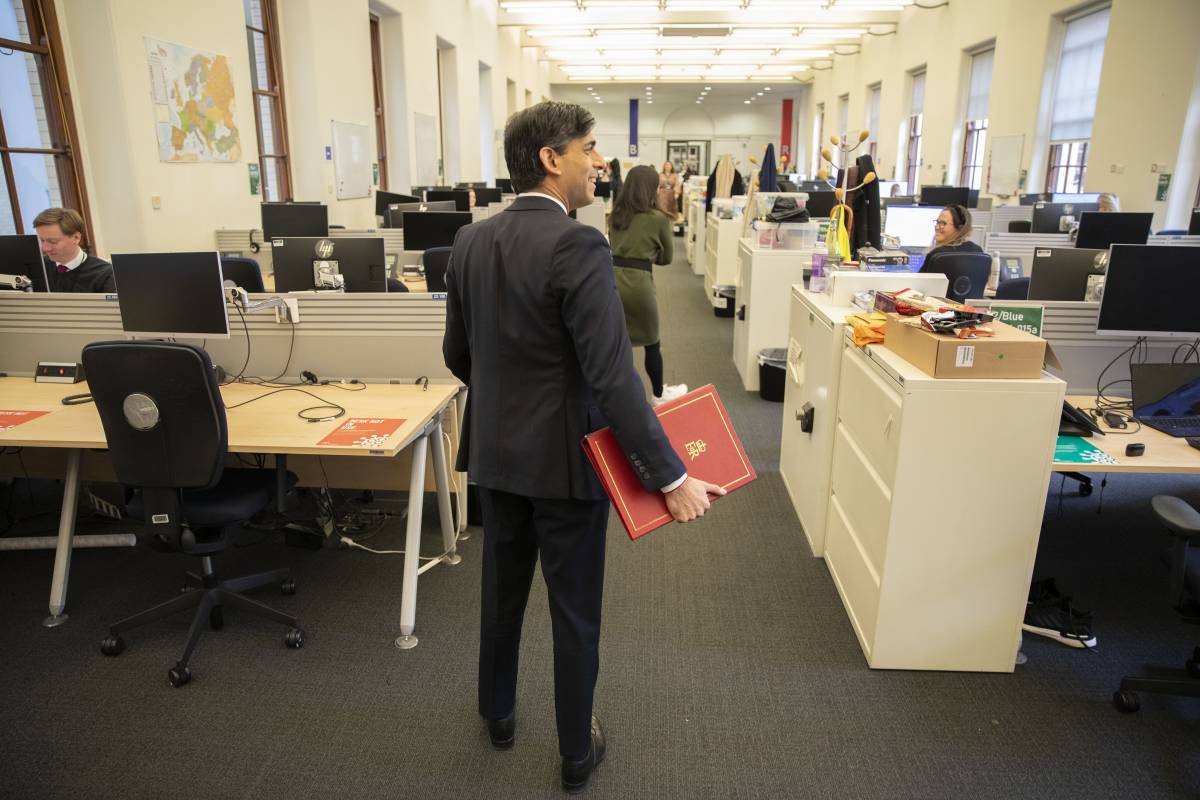Sunak has announced a series of new initiatives that will boost regional cities and towns around the UK, reports Asian Lite News
In his budget, the Chancellor unveiled plans to create Freeports, city and growth deals and a new UK Infrastructure Bank that will based in Leed.
The Freeports – “special economic zones with different rules to make it easier and cheaper to do business” – will be located at East Midlands Airport, Felixstowe and Harwich, the Humber region, the Liverpool City Region, Plymouth, Solent, Thames and Teesside, the Chancellor announced.
Sunak said the freeports will have “simpler planning”, “cheaper customs – with favourable tariffs, VAT or duties”, and lower taxes – with “tax breaks to encourage construction, private investment and job creation”.
He also announced city and growth deals in Ayrshire, Argyll and Bute, and Falkirk, adding there will be three more in North Wales, Mid Wales, and Swansea Bay.
Sunak added there will be funding for the Holyhead hydrogen hub, the Global Centre of Rail Excellence in Neath Port Talbot, the Aberdeen Energy Transition Zone, and the Global Underwater Hub and the North Sea transition deal.

He said: “Through the Barnett formula, the decisions I’m taking in this Budget also increase the funding for the devolved administrations, by £1.2 billion for the Scottish government, £740 million for the Welsh government and £410 million for the Northern Ireland executive.”
Also read:‘UK lockdowns take heavy toll on mental health’
And the Chancellor said a new UK Infrastructure Bank will be located in Leeds.
He told MPs: “The Bank will invest across the UK in public and private projects to finance the green industrial revolution.”
Sunak said the Government is also funding new port infrastructure to build the next generation of offshore wind projects in Teesside and Humberside.

Freeports are usually located around shipping ports, or airports.
Goods that arrive into freeports from abroad aren’t subject to the tax charges, called tariffs that are normally paid to the government.
These taxes are only paid if the goods leave the freeport and are moved elsewhere in the UK. Otherwise, they are sent overseas without the charges being paid.
The UK had seven freeports between 1984 and 2012. Locations included Liverpool, Southampton and the Port of Tilbury.
Also read:UK rolls out surge testing









